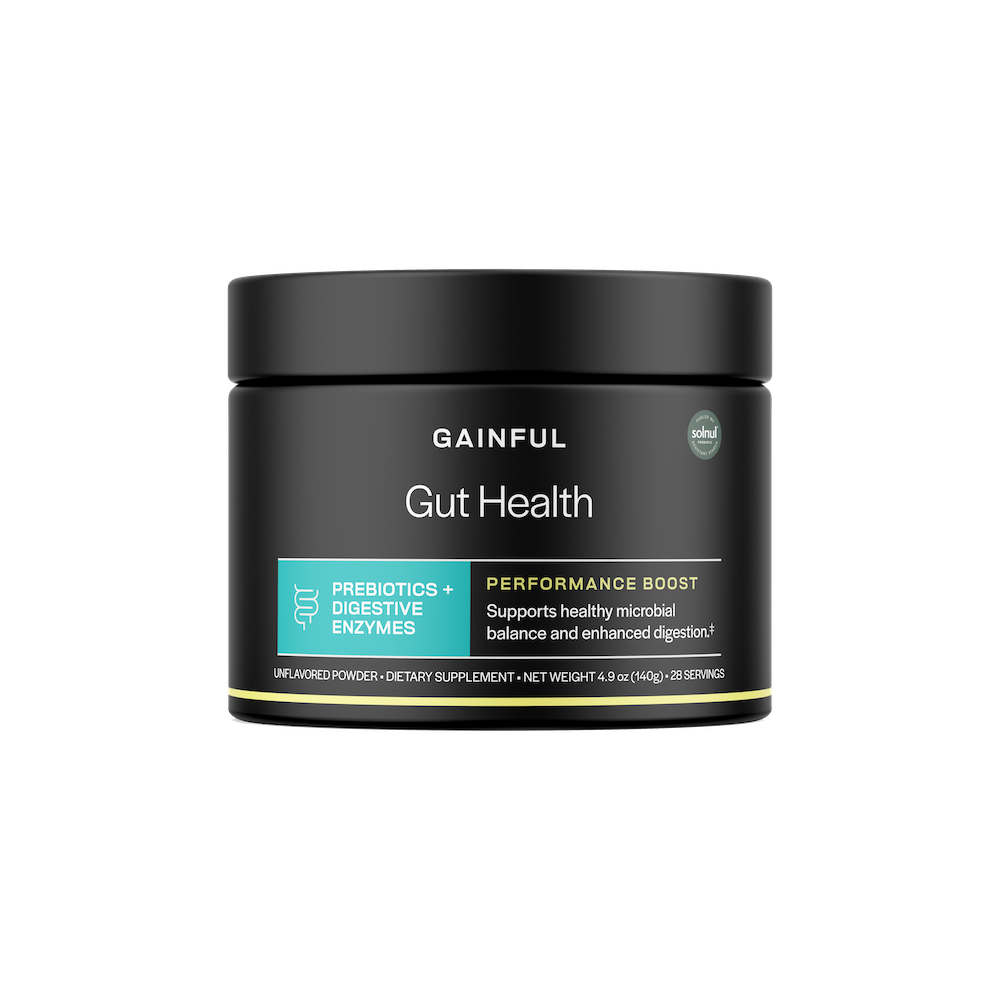How a gut health supplement Can Help You Beat Bloating and Improve Digestion
Wiki Article
Checking out the Causes and Manifestations of Gut Issues and the Duty of Intestine Wellness Supplement
Intestine health is a crucial aspect of overall wellness. Poor nutritional choices, tension, and imbalances in digestive tract bacteria can bring about various gastrointestinal issues. Signs such as bloating, looseness of the bowels, and abdominal discomfort usually suggest much deeper health and wellness issues. Understanding these reasons and the potential role of gut wellness supplements might give important understandings. What methods can be used to bring back equilibrium and enhance gut function? The responses might hinge on the next actions.Comprehending the Intestine Microbiome
The intestine microbiome, a complicated community of trillions of microorganisms staying in the digestion tract, plays a necessary role in total health. This varied neighborhood contains germs, viruses, fungis, and other microorganisms that connect symbiotically with the human host. They assist in the digestion of food, the synthesis of vitamins, and the law of metabolism. The gut microbiome substantially affects the immune system, helping to secure versus pathogens and preserve a balanced inflammatory feedback. Research shows that a healthy and balanced microbiome is essential for mental health, with gut-brain interactions influencing mood and behavior. Variables such as diet plan, lifestyle, and environmental direct exposures can shape the make-up of the microbiome, highlighting the significance of preserving a balanced diet regimen rich in fiber and probiotics. Understanding this complex ecosystem uses insights into just how gut health and wellness can affect general physical and psychological wellness, highlighting its relevance in health and wellness management.Usual Reasons For Gastrointestinal Concerns
Although numerous elements can add to digestive issues, specific common causes often interrupt intestine health and wellness. Poor nutritional selections, such as high sugar and refined food intake, can lead to inequalities in gut germs. In addition, poor fiber consumption can hinder digestion and promote irregular bowel movements. Anxiety is one more considerable aspect, as it can modify digestive tract function and intensify status quo. In addition, lack of exercise may decrease the gastrointestinal system, triggering discomfort and bloating.Infections, including bacterial, viral, or parasitical representatives, can likewise cause gastrointestinal disturbances. Food allergies and intolerances, particularly to gluten and lactose, typically result in digestive system discomfort. The abuse of antibiotics can interfere with the natural microbiome, leading to further difficulties. Acknowledging these usual causes is essential for people looking for to boost their digestive tract wellness and overall well-being.
Identifying Symptoms of Digestive Tract Troubles
Determining signs and symptoms of gut issues can be important for prompt intervention and enhanced health and wellness. People experiencing intestinal discomfort needs to recognize a number of usual indicators that suggest underlying concerns. Symptoms may consist of bloating, gas, diarrhea, irregularity, and abdominal pain. These indications can vary in strength and frequency, often showing the seriousness of the intestine issue. In addition, some people might discover unplanned fat burning, tiredness, or adjustments in hunger, which might signify an extra serious condition. Skin issues, such as rashes or acne, may also occur, connecting digestive tract wellness to total health. Importantly, consistent symptoms must not be neglected, as very early acknowledgment can assist in efficient therapy and stop additional difficulties. An extensive understanding of one's physical signals is crucial, allowing people to look for clinical guidance when necessary and potentially resulting in better health end results through suitable interventions.The Impact of Diet Regimen on Digestive Tract Health And Wellness
Diet plays an important role in determining intestine health and wellness, influencing both microbial equilibrium and gastrointestinal effectiveness. Nutrient-rich foods can promote a healthy digestive tract atmosphere, while processed foods may result in discrepancies and digestion problems. Recognizing these dietary impacts is important for maintaining overall digestive tract wellness.Nutrient-Rich Foods
While several variables affect intestine health, the duty of nutrient-rich foods can not be overstated. A diet regimen bountiful in entire foods, such as fruits, veggies, whole grains, lean healthy proteins, and healthy and balanced fats, contributes substantially to preserving a well balanced gut microbiome. These foods give important vitamins, minerals, and antioxidants that support digestive wellness and minimize swelling. Fiber-rich choices, specifically, promote routine defecation and nourish advantageous intestine microorganisms, improving overall intestine function. Probiotic-rich foods like yogurt and fermented veggies further sustain intestine flora, helping food digestion. Incorporating a variety of nutrient-dense foods not just cultivates a healthy gut atmosphere yet likewise reinforces the body immune system, adding to overall wellness. Focusing on these foods can bring about improved intestine health and protect against prospective concerns.Refined Food Effects
The usage of refined foods can substantially weaken gut health and wellness, counteracting the benefits of nutrient-rich alternatives. These foods are commonly high in additives, chemicals, and sugars, which can interfere with the balance of digestive tract microbiota. A diet plan abundant in refined things has a tendency to do not have crucial nutrients, resulting in deficiencies that compromise digestive system function. Excessive sugar and unhealthy fats can promote inflammation and add to conditions like short-tempered bowel disorder (IBS) and leaking digestive tract disorder. This inequality might lead to symptoms such as bloating, pain, and gas. Additionally, the reduced fiber material in processed foods decreases digestion wellness by restricting the development of valuable microorganisms. Inevitably, a change in the direction of whole, unrefined foods is crucial for keeping optimal intestine feature and total healthExactly How Anxiety Affects Digestion
Tension significantly impacts digestion by causing a waterfall of physiological actions that can disrupt typical stomach function. When an individual experiences tension, the body goes into a fight-or-flight setting, releasing hormonal agents such as cortisol and adrenaline. These hormones can reduce food digestion by minimizing blood circulation to the digestive system organs, bring about symptoms such as constipation, bloating, or diarrhea.Stress and anxiety can alter the gut microbiome, negatively impacting the balance of valuable germs. This inequality can intensify existing intestine concerns or develop new ones. Furthermore, stress usually results in harmful eating behaviors, such as overeating or consuming refined foods, which can even more jeopardize digestive health.
Psychological variables, such as anxiety and anxiety, can additionally contribute to intestinal pain, creating a comments loophole that continues intestine issues. Understanding the intricate partnership between anxiety and food digestion is necessary for keeping general gut wellness.
The Function of Digestive Tract Health And Wellness Supplements
Gut wellness supplements play a considerable role in boosting digestion function and general wellness. Trick ingredients, such as prebiotics and probiotics, are crucial for keeping a balanced gut microbiome. Recognizing the benefits and parts of these supplements can aid people in making informed choices for their digestive health.Advantages of Intestine Supplements
A prospering gastrointestinal system is essential for general health and wellness, and gut health supplements can play a substantial function in accomplishing this balance. These supplements typically include probiotics, prebiotics, and various nutrients that support digestive system function and promote a healthy and balanced digestive tract microbiome. By improving the growth of beneficial microorganisms, they can improve digestion, decrease bloating, and relieve pain related to stomach concerns. Additionally, intestine supplements might reinforce the intestine barrier, potentially minimizing the risk of food sensitivities and inflammatory problems. Regular use can also contribute to enhanced nutrient absorption, energy levels, and even mental well-being, as gut health is very closely linked to mood policy. Eventually, integrating digestive tract health supplements can be a critical method to preserving digestive consistency and total wellness.
Trick Active Ingredients to Think About
When picking intestine wellness supplements, recognizing the vital ingredients is important for maximizing their benefits. Probiotics, particularly Lactobacillus and Bifidobacterium strains, are important as they help restore a balanced gut microbiome. Prebiotics, such as inulin and fructooligosaccharides, act as food for these valuable microorganisms, promoting their development. Digestive enzymes, consisting of amylase and supplement for gut health protease, aid in breaking down food, improving nutrient absorption. Furthermore, fiber resources like psyllium husk support normal bowel motions and total gut health and wellness. Various other beneficial active ingredients might consist of L-glutamine, which assists out of commission digestive tract lining, and zinc, recognized for its immune-supporting residential properties. Choosing supplements with these key components can substantially enhance gut wellness and general wellness.Tips for Maintaining a Healthy And Balanced Digestive Tract
Keeping a healthy intestine is necessary for total wellness, as it plays a crucial function in immunity, nutrient, and food digestion absorption. To support intestine health, people need to focus on a well balanced diet plan abundant in fiber from fruits, vegetables, and entire grains. These foods promote beneficial germs in the intestine. Furthermore, incorporating fermented foods such as kefir, yogurt, and sauerkraut can improve digestive tract plants diversity. Remaining moisturized is also important, as enough water consumption help digestion and nutrient transport.Normal physical task adds to gut wellness by advertising effective digestion and decreasing tension, which can adversely influence digestive tract function. Handling stress and anxiety via mindfulness techniques like reflection or yoga exercise can additionally sustain digestive tract wellness. Lastly, preventing extreme use anti-biotics and restricting processed foods, sugars, and undesirable fats can promote a balanced gut environment. By embracing these methods, individuals can substantially boost their intestine wellness and general health.
Frequently Asked Inquiries

Can Digestive Tract Wellness Effect Mental Health and State Of Mind Security?
Research suggests a significant web link in between digestive tract wellness and psychological well-being. The digestive tract microbiome can affect mood security and mental health, recommending that preserving a healthy and balanced gut might add positively to psychological durability and cognitive feature.Exist Particular Foods to Avoid for Better Intestine Health And Wellness?
Certain foods can negatively impact digestive tract health, including refined sugars, sweetening agents, and high-fat milk products. Minimizing these products might enhance digestion function and advertise a healthier digestive tract microbiome, causing in general better wellness.Exactly how Lengthy Does It Take for Intestine Health Supplements to Program Impacts?
The period for digestive tract health and wellness supplements to demonstrate results varies among people. Normally, visible changes might occur within a couple of weeks, but some individuals might require a number of months for excellent outcomes, depending upon their unique health and wellness problems.Can Children Experience Digestive Tract Concerns Comparable to Grownups?

Kids can experience intestine problems comparable to adults, including discomfort, bloating, and irregular defecation (supplement for bloating). Elements such as diet, tension, and infections may add to these troubles, making awareness and management crucial for their wellness
What Are the Long-Term Results of Unattended Intestine Issues?

Fiber-rich alternatives, especially, advertise normal digestive tract activities and nurture beneficial gut bacteria, boosting overall digestive tract function. A flourishing digestive system is important for general health, and gut health supplements can play a significant role in achieving this equilibrium. Furthermore, digestive tract supplements may strengthen the intestine barrier, potentially minimizing the risk of food sensitivities and inflammatory problems (supplement for bloating). Normal physical task contributes to intestine health and wellness by promoting reliable food digestion and decreasing tension, which can adversely influence intestine function. Particular foods can negatively influence digestive tract wellness, including refined sugars, artificial sugar, and high-fat dairy products
Report this wiki page